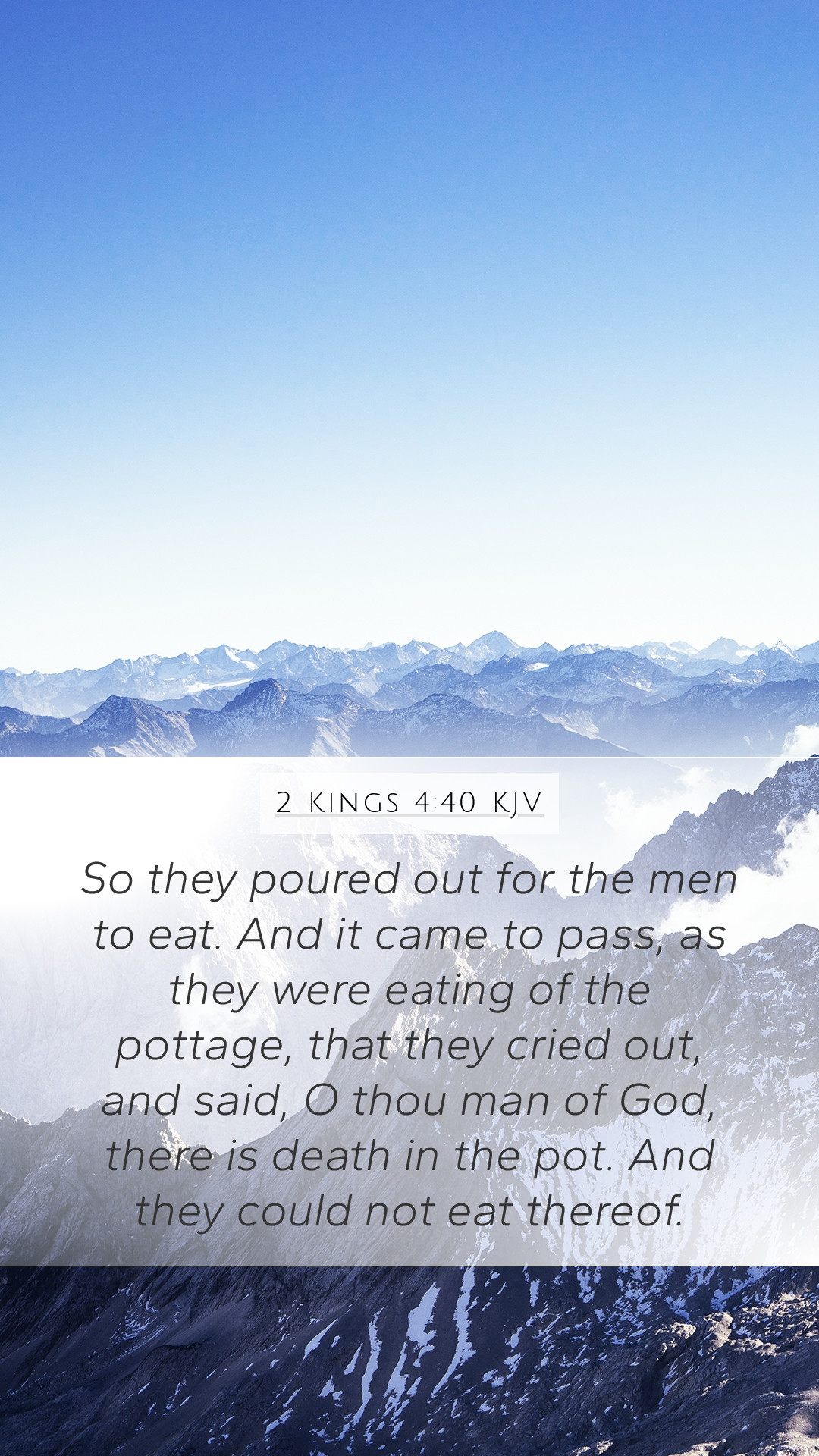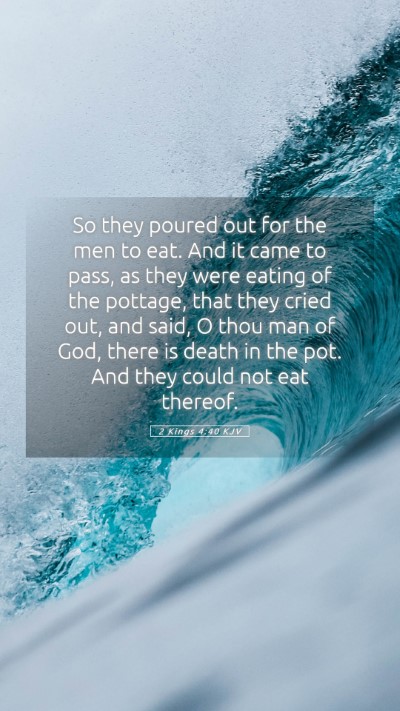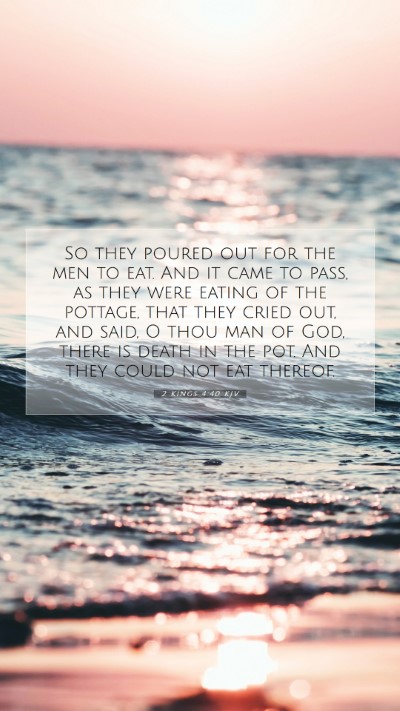Understanding 2 Kings 4:40
Bible Verse: 2 Kings 4:40
2 Kings 4:40 states: "So they poured it out for the men to eat; but while they were eating of the pottage, they cried out, and said, O thou man of God, there is death in the pot. And they could not eat thereof."
Overview of the Verse
This verse recounts a moment during the ministry of the prophet Elisha, where a meal was prepared for the prophets but was accidentally poisoned. The significance of this event provides deep insights into the nature of divine provision and the importance of discernment in spiritual matters.
Insights from Commentaries
Several public domain commentaries shed light on this passage:
Matthew Henry’s Commentary
Matthew Henry emphasizes the miraculous nature of Elisha’s ministry and the compassion he displayed. Henry notes that the incident illustrates how human efforts, even with good intentions, can lead to negative outcomes when not guided by divine wisdom. The cry of the prophets reveals a recognition of the danger posed by the poisonous meal, emphasizing the need for discernment in spiritual nourishment.
Albert Barnes’ Notes on the Bible
Barnes elaborates on the practical implications of this verse. He points out that the prophets’ immediate awareness of the danger indicates their spiritual sensitivity. The phrase "there is death in the pot" represents a broader spiritual truth—warnings against consuming that which is harmful, paralleling how spiritual leaders must be vigilant about the teachings they embrace and share. Barnes highlights Elisha's subsequent action of purifying the pot as a symbol of God's power to restore and redeem, suggesting that even in dire situations, divine intervention can make all things right.
Adam Clarke’s Commentary
Adam Clarke provides a detailed historical and linguistic analysis of this verse. He discusses the nature of the poisonous plant that caused the issue and contextualizes the event within the broader narrative of Elisha's ministry. Clarke notes the significance of community in this passage—how the prophets relied on each other for sustenance, both physical and spiritual, and the horror they experienced upon discovering the danger in their meal. He points out the lesson of looking to God for guidance, reaffirming the need for God’s presence in both physical and spiritual sustenance.
Key Themes and Meanings
- The Danger of Spiritual Deception: This passage teaches readers about the risks of accepting teachings without discernment. Just as the pottage was poison, so too can false teachings lead to spiritual death.
- The Role of Prophets: The incident emphasizes the responsibilities of spiritual leaders to ensure that the teachings they provide are healthy for their followers. It underscores the importance of divine insight in ministry.
- Divine Intervention: Elisha's ability to purify the pot illustrates God’s willingness to intervene in moments of crisis, showcasing His power to transform situations from peril to provision.
- Community and Accountability: The gathering of prophets reflects the importance of fellowship and the mutual accountability within community, reiterating how shared experiences can lead to collective growth in understanding.
Application in Daily Life
This scripture can be applied in various ways:
- Be discerning about the teachings and philosophies embraced in your life; not everything presented as nourishment is safe.
- Seek God’s wisdom in all matters, particularly when the stakes are high, trusting in His ability to purify and restore.
- Participate actively in community and fellowship to learn from others' insights and experiences.
- Recognize the importance of accountability within spiritual leadership and strive to uphold the integrity of teachings shared in any Bible study setting.
Cross References
- 2 Kings 4:38: This verse provides the context of the gathering of the prophets before the pottage incident occurred.
- Matthew 7:15-20: Jesus teaches about recognizing false prophets, which echoes the themes in 2 Kings 4:40.
- Romans 16:17-18: An admonition that aligns with the recognition of harmful teachings, paralleling the understanding needed from the prophets in this scene.
- 1 Timothy 4:1-5: A warning against false teachings that can corrupt faith, akin to the poisonous nature of the pottage in this passage.
Conclusion
In summary, 2 Kings 4:40 serves as a poignant reminder of the need for discernment in spiritual matters. Through the insights provided by various commentators, we gain a clearer understanding of the dangers present within spiritual communities and the need for divine guidance. Whether utilized in Bible study groups or personal Bible study, the lessons drawn from this passage can encourage believers to actively seek God’s wisdom and be vigilant about the teachings they accept.


